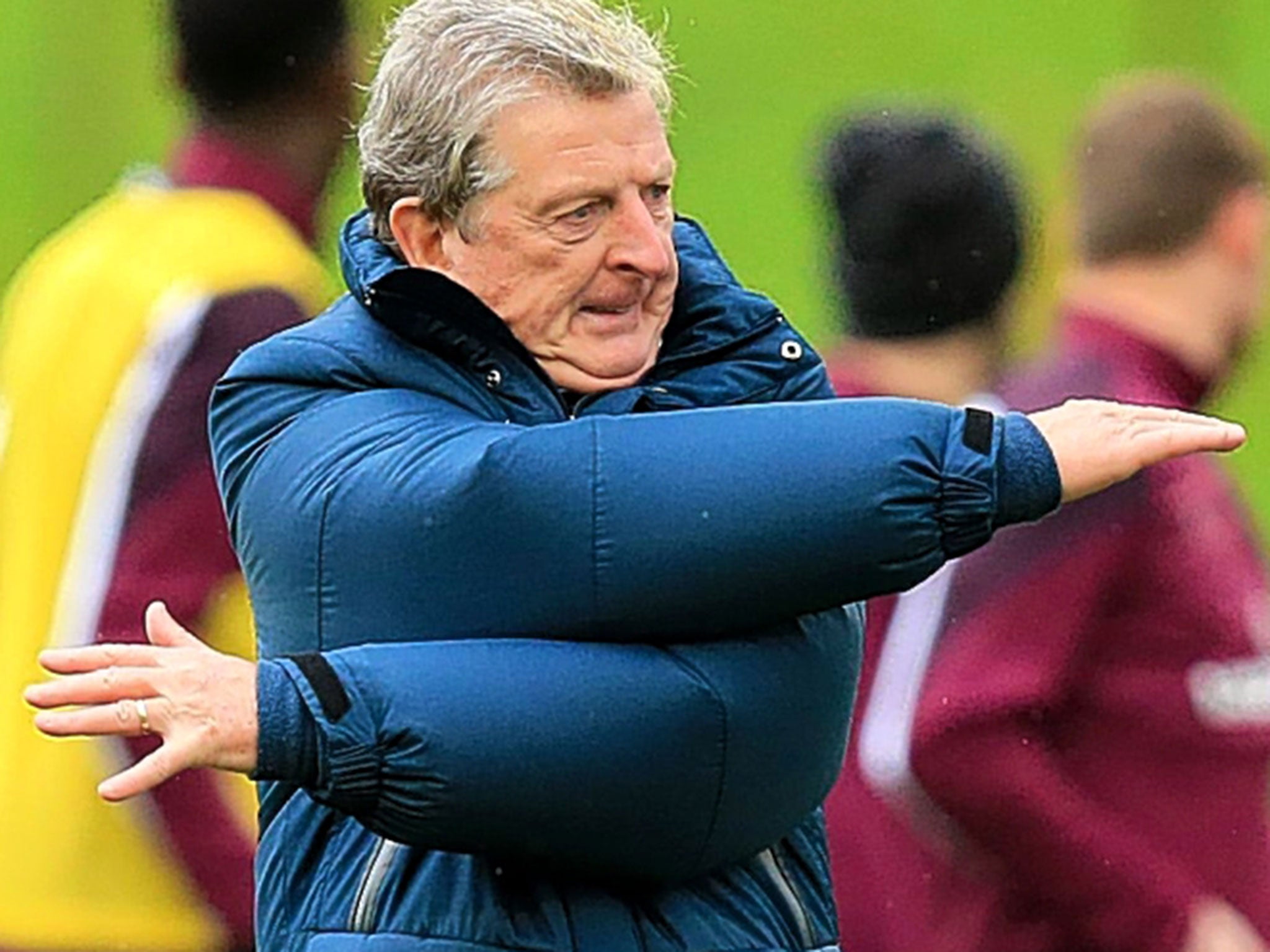Kevin Garside: Joyless toil exhibited by England won’t win over PlayStation generation
COMMENT: The international break is frankly an unwanted intrusion

Even when he wins he loses. Roy Hodgson is the victim of circumstances that see interest in the England national team at a historically low ebb. It takes a friendly with Scotland, a fixture of nil consequence in the broader scheme, to generate a pulse in the stands, an ancient rivalry retaining at least some meaning for a dwindling audience.
The football phone-ins and online chat rooms were full of woe on Saturday night after a performance against Slovenia that in the first half at least had even Hodgson wondering if he could get away early.
England worked it out in the end and managed to put a bit of speed on the ball but that was never going to be good enough for some.
It is a long time since England displayed the ultimate bauble on the FA mantelpiece. Decades of joyless toil at major tournaments have sapped hope in the older generation and failed to bring the youth through the door.
One 15-year-old football fanatic in my house has given up all together. “England are boring, Dad,” goes the argument as he reaches for the remote control in search of the Germany/Brazil/Spain/Argentina game.
Like many of his PlayStation generation, reared on the Fifa fantasy console, he seeks his football fix via the Premier and Champions Leagues, where the great players of the world assemble twice a week to deliver their myriad thrills.
The international break is frankly an unwanted intrusion, something that gets in the way, especially when England serve up the bilge they did in the first half on Saturday.
The answer if England are ever to reconnect fully with the nation is to be bold and flood the team with youth and vigour.
It was heartening to see Ross Barkley, Saido Berahino and Alex Oxlade-Chamberlain going through their paces at half-time, offering a glimmer of what might be.
Hodgson’s responsibility is, of course, to win. He acknowledges the desirability of an attractive England team playing entertaining, expansive football but cannot allow those considerations to come first.
He said as much on Saturday night, pledging to use the greater number of substitutions available to him against Scotland to give game time to those mentioned above but not at the expense of a result, and certainly not at the start of the match.
Hodgson is not to blame. It is not his fault that nature of the game is changing, but it won’t be long before the penny drops and the FA is forced to address the meaning of the national team in an era when interest is concentrated ever more on the club game.
The attempt by Uefa to broaden inclusion has led to the wholesale watering down of the qualification programme. Far from making it easier for smaller nations to compete, the bloated qualifying allows the big nations to make mistakes and still progress.
In other words all tension is lost. England have won all four of their matches and lead Group E by six points. This serves neither England nor the game well.
It took England to fall behind before they generated the necessary forward thrust against Slovenia.
The first-half failings disappointed Hodgson as much as anybody. Those whose first thought is to pan the coach might reflect on the change he made at half-time, pinning Raheem Sterling to the right flank for 15 minutes to provide some attacking structure, which ultimately swung the game England’s way.
Hodgson was at pains to point out that he didn’t want Sterling rooted to the right for the whole half. Indeed the Liverpool forward was encouraged to come inside, to be mobile, but to do so in a more co-ordinated way in unison with his team-mates rather than on the whim that left him isolated in no man’s land for much of the first half.
“I think we benefited by moving Raheem wide on the right and asking Danny [Welbeck] to play wider on the left but I made it clear to them that I didn’t want wingers. I didn’t want Raheem stuck on one touchline and Danny on the other. I wanted them to continue to come in. Raheem came to life in the second half and showed us the great qualities he has,” Hodgson said.
“We are seeing signs of the pace and athleticism we have in the squad, not only in attacking phases of the game but in defensive phases too. We are quick to win the ball back in what we call five-second furies.
“But it is too soon after four or five games to say we are improving here, improving there. I certainly don’t think we are going backwards. We are moving in a decent direction, and I do think we can get a lot better, but we are not patting ourselves on the back at the moment.”
Join our commenting forum
Join thought-provoking conversations, follow other Independent readers and see their replies
Comments
Bookmark popover
Removed from bookmarks